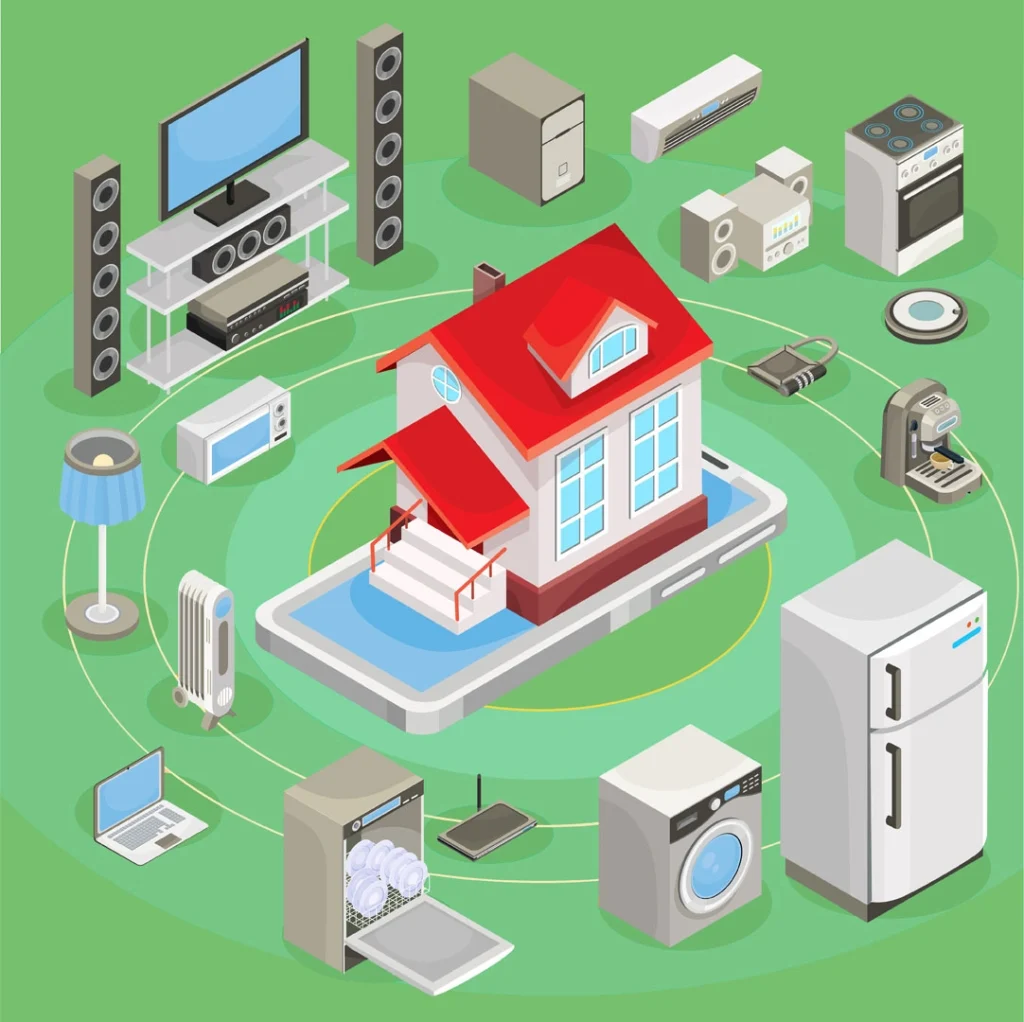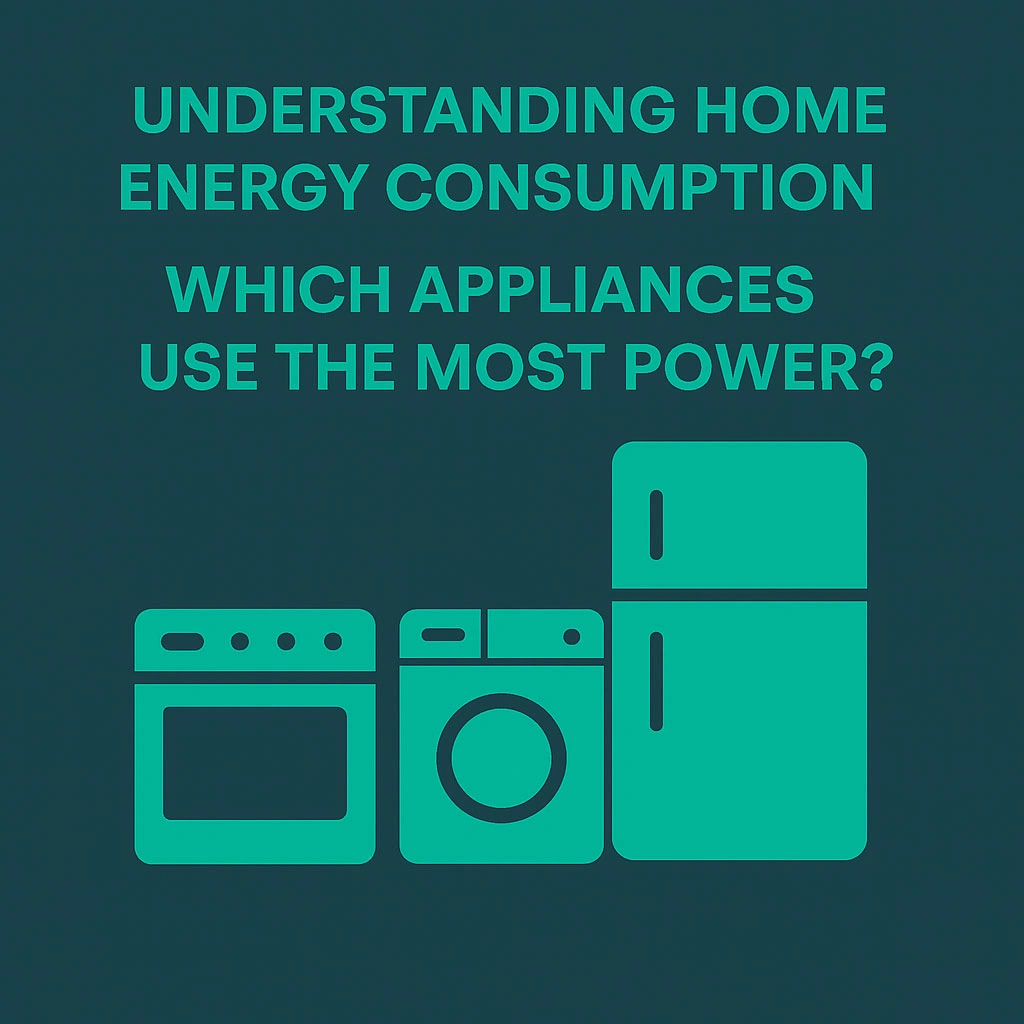Understanding Home Energy Consumption:
Which Appliances Use the Most Power?
In recent years, home energy consumption has become a major talking point. Between climate concerns, rising electricity prices, and global uncertainty, more households are keeping a closer eye on the way they use power.
And while it’s something we arguably should have done long ago, there’s no time like the present to build better energy habits.
Learning how and when to use high-consumption devices not only helps reduce bills but also extends the life of energy storage systems if you’re using battery storage solutions.
Let’s break down the top power-hungry appliances in your home—and how to manage them smartly.
High-Energy Heating Appliances
Appliances that generate heat tend to consume the most electricity.
These include ovens, heaters, tumble dryers, and electric showers.
Here’s a breakdown of their average daily and yearly usage and costs:
Heating Appliances
| Appliance | Power Rating | Daily Use | Daily Cost | kWh Used | Annual Cost |
|---|---|---|---|---|---|
| Oven | 2.1 kW | 1 hour | £0.51 | 2.1 kWh | £186.15 |
| Oil Radiator | 2 kW | 4 hours | £1.96 | 8 kWh | £715.40 |
| Storage Heater | 1.5 kW | 4 hours | £1.47 | 6 kWh | £536.55 |
| Tumble Dryer | 5.2 kW | 1 hour | £1.27 | 5.2 kWh | £463.55 |
| Electric Heater | 4.5 kW | 4 hours | £4.41 | 18 kWh | £1,609.65 |
| Electric Blanket | 0.1 kW | 1 hour | £0.02 | 0.1 kWh | £8.94 |
| Hair Dryer | 1.8 kW | 10 mins | £0.04 | 0.18 kWh | £16.09 |
| Steam Iron | 1.1 kW | 1 hour | £0.27 | 1.1 kWh | £98.37 |
| Shower | 8.4 kW | 30 mins | £1.03 | 4.2 kWh | £375.59 |
| Dishwasher | 1.8 kW | 1 hour | £0.44 | 1.8 kWh | £160.97 |
💡 Tip: Consider replacing electric heaters with more efficient systems—they’re among the most expensive items to run in any home.
Cooling Appliances: Constant Yet Economical
While they run continuously, most cooling appliances like fridges and freezers are relatively energy-efficient.
Air conditioning, however, is an exception.
Cooling Appliances
| Appliance | Power Rating | Daily Use | kWh Used | Daily Cost | Annual Cost |
|---|---|---|---|---|---|
| Fridge | 0.06 kW | 24 hours | 1.44 kWh | £0.35 | £128.42 |
| Chest Freezer | 0.03 kW | 24 hours | 0.72 kWh | £0.18 | £65.70 |
| Fridge Freezer | 0.02 kW | 24 hours | 0.48 kWh | £0.12 | £42.92 |
| Air Con | 2.8 kW | 3 hours | 8.4 kWh | £2.06 | £751.17 |
| Ceiling Fan | 0.03 kW | 8 hours | 0.24 kWh | £0.06 | £21.46 |
Even small daily costs can add up significantly over the year.
Always-On Appliances and Other Power-Hungry Devices
Some of the biggest contributors to your electricity bill are items you don’t think about—like TVs, computers, and chargers.



Other Energy-Using Appliances
| Appliance | Power Rating | Daily Use | kWh Used | Daily Cost | Annual Cost |
|---|---|---|---|---|---|
| 40" TV | 0.12 kWh | 4 hours | 0.48 kWh | £0.12 | £42.92 |
| Desktop Computer | 0.6 kWh | 8 hours | 4.8 kWh | £1.18 | £429.24 |
| Game Console | 0.35 kWh | 2 hours | 0.7 kWh | £0.17 | £62.60 |
| Laptop | 0.05 kWh | 8 hours | 0.4 kWh | £0.10 | £35.77 |
| EV Car Charger | 7 kWh | 10 hours | 70 kWh | £17.15 | £6258.75 |
| Smart Speakers | 0.02 kWh | 4 hours | 0.08 kWh | £0.02 | £7.17 |
| Lights | 0.2 kWh | 2 hours | 0.4 kWh | £0.10 | £35.77 |
While EV charging may seem expensive, it often still costs less than traditional fuels—especially when charging overnight on cheaper tariffs.
Smart Energy Habits: Reducing Load, Saving Money
Every time you switch on an appliance, you’re placing a demand—or load—on your power supply. Managing how and when you use devices can significantly lower home energy consumption and prevent overloading your system.
If you’re using battery storage, timing is key. Simultaneously running high-powered appliances like an oven, heater, and EV charger could overwhelm your system, reduce voltage, and shorten the battery’s lifespan.
📌 Top Tips to Reduce Peak Load:
Stagger appliance use: Cook dinner before charging your EV.
Avoid using multiple heaters simultaneously.
Charge devices during low-demand hours.
Use appliance timers where possible.
Battery management systems protect against overloads and extreme temperatures, but your usage habits can go a long way in preserving battery health and reducing overall costs.
Final Thoughts on Energy Use at Home
Understanding which appliances consume the most energy is the first step toward more efficient, cost-effective living.
By identifying power-hungry devices and adjusting your usage patterns, you’ll not only reduce your electricity bills but also create a more sustainable household.
Lowering home energy consumption isn’t just about saving money—it’s about making smarter choices for the planet and your future.
At Bournemouth Solar Quotes, we help you connect the dots between clean energy and smarter transport.
To find out more contact us today
